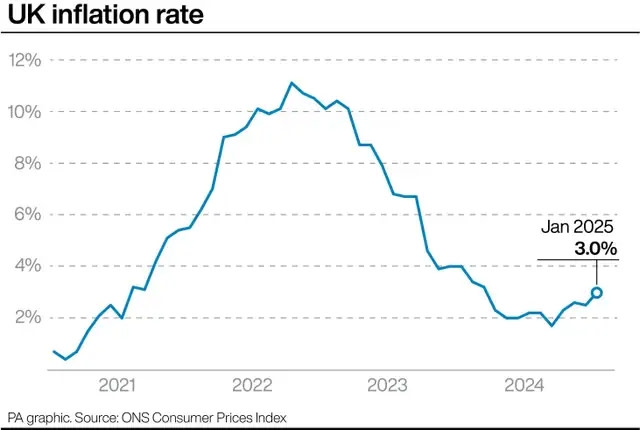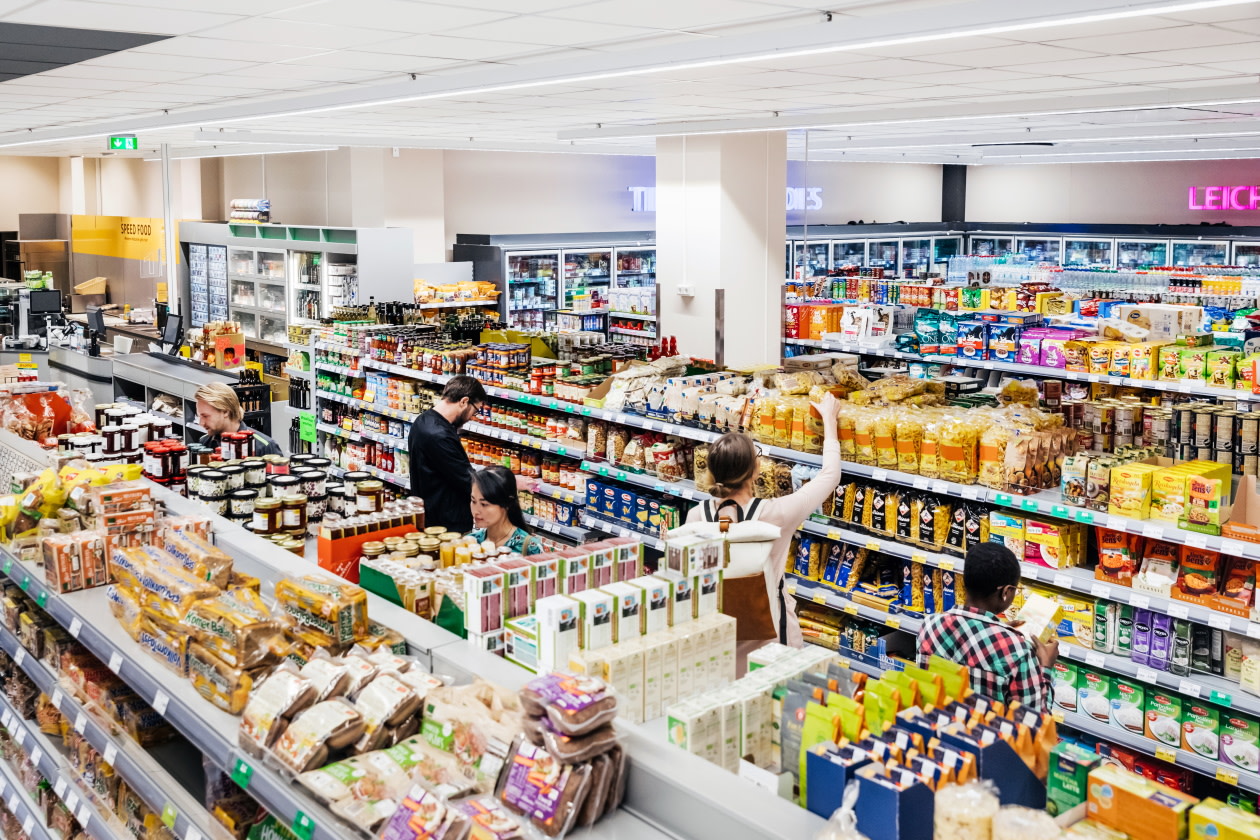UK inflation jumped to its highest level for 10 months in January, according to new official figures.
Plane fares, rising food costs and a sharp jump in private school fees all contributed to higher living costs.
The rate of Consumer Prices Index (CPI) inflation rose to 3% in January from 2.5% in December, the Office for National Statistics (ONS) said.

It was higher than predicted by analysts, who had forecast a rate of around 2.8%.
The sharp increase will add to pressure on policymakers at the Bank of England over whether to consider further interest rate cuts in their bid to keep inflation around their 2% target rate.
ONS chief economist Grant Fitzner said: “Inflation increased sharply this month to its highest annual rate since March last year.
Consumer Price Index (CPI) rose by 3.0% in the 12 months to January 2025, up from 2.5% in December 2024.
— Office for National Statistics (ONS) (@ONS)
“The rise was driven by air fares not falling as much as we usually see at this time of year, partly impacted by the timing of flights over Christmas and New Year. This was the weakest January dip since 2020.
“After falling this time last year, the cost of food and non-alcoholic drinks increased, particularly meat, bread and cereals.”
The price of meat and bread both increased by 2.3% year-on-year, according to the figures.
Inflation was also pushed higher by higher private school fees, following the Labour Government’s move to apply 20% VAT to private school education and boarding fees.
The data showed that many schools passed on significant price increases to parents as a result, with private school fees up 12.7% year-on-year.
The education sector as a whole saw inflation at 7.5% as a result – the highest rate since September 2015.
Chancellor Rachel Reeves said on Wednesday her “number one mission” was getting “more pounds in pockets” after the ONS confirmed the rise in inflation.
“That’s why we’re going further and faster to deliver economic growth,” she said.
“By taking on the blockers to get Britain building again, investing to rebuild our roads, rail and energy infrastructure and ripping up unnecessary regulation, we will kick-start growth, secure well-paid jobs and get more pounds in pockets.”
Inflation is expected to steadily rise further over the coming months, with the Bank of England predicting inflation will peak at 3.7% in late summer.
Higher taxes for businesses and the increase in the minimum wage, which were announced in last October’s Budget, will come into force in April and are expected to contribute to higher inflation.
The Bank of England cut interest rates again earlier this month to 4.5%, in their third cut since lifting borrowing costs to bring down inflation.
Economists have therefore indicated that higher-than-expected inflation and rising wage costs could cause the central bank to pause rate cut plans.
The cost of raw materials fell 0.1% in the year to Jan 2025, compared to a revised fall of 1.3% in the year to Dec 2024.
Meanwhile, factory gate prices rose 0.3% in the year to Jan 2025, up from a revised fall of 0.1% in the year to Dec 2024.
— Office for National Statistics (ONS) (@ONS) February 19, 2025
Roger Barker, director of policy at the Institute of Directors, said: “This month’s figures add to the uncertainty around the UK inflationary outlook.
“In April, the private sector must determine its response to significantly higher employment costs, and this may well push up consumer prices.
“The latest figures also cast doubt on the pace of future interest rate cuts, which the Bank of England may choose to delay due to the persistence of inflationary pressures.”
The ONS’s preferred measure of inflation, Consumer Price Index including occupiers housing (CPIH), rose to 3.9% for the month, from 3.5%.
Meanwhile, the Retail Prices Index (RPI) rate of inflation rose to 3.2% from 2.9%.
This article was written by PA Deputy Business Editor and Henry Saker-Clark from Press Association and was legally licensed through the DiveMarketplace by Industry Dive. Please direct all licensing questions to legal@industrydive.com.

